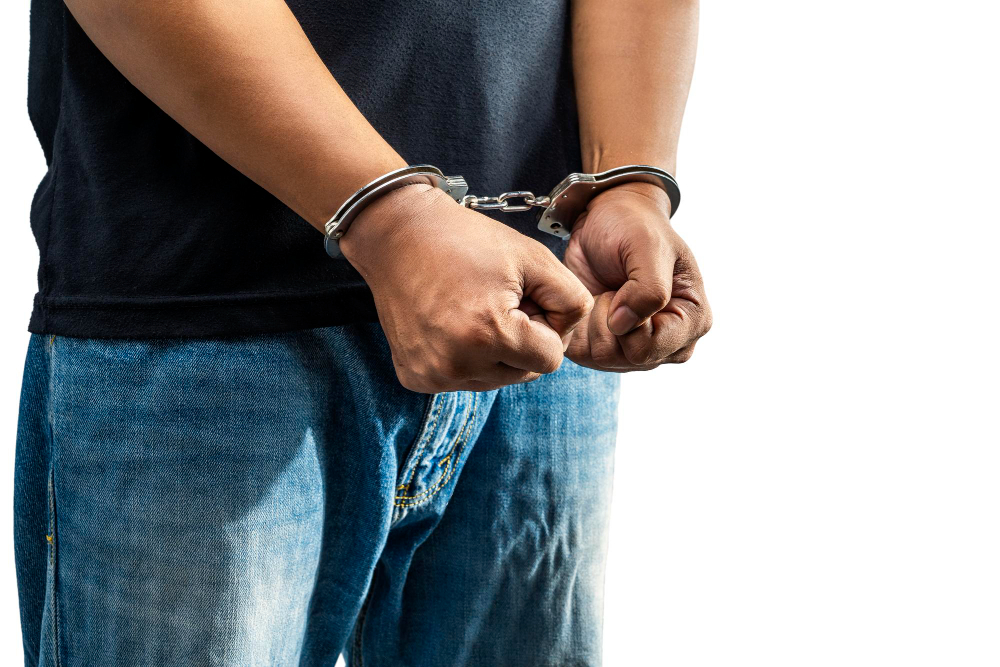


Being arrested is one of the most stressful experiences anyone can face. The flashing lights, the handcuffs, the reading of your rights—it's overwhelming and frightening. However, how you handle yourself during an arrest can significantly impact your case and your future. Making the wrong move in those crucial moments can worsen your situation, while knowing what to do can protect your rights and improve your chances of a favorable outcome.
Whether you're facing charges for the first time or helping a loved one through this difficult process, understanding the proper protocol during an arrest is essential. This guide will walk you through the critical dos and don'ts that could make all the difference in your case. We'll also cover what happens after an arrest, including how bail bonds in Orlando, FL work and when you might need professional help to secure your release.
Your first priority during an arrest should be to remain as calm as possible. Take deep breaths and avoid any sudden movements that could be misinterpreted as threatening. Police officers are trained to maintain control of the situation, and any resistance—even verbal—can escalate tensions unnecessarily.
Follow basic commands like "put your hands behind your back" or "step out of the vehicle." These aren't requests; they're lawful orders that you must obey. Compliance doesn't mean you're admitting guilt—it simply means you're preventing the situation from becoming worse.
Once you're arrested, you have the constitutional right to remain silent, and you should use it. Politely tell the officers, "I am exercising my right to remain silent, and I want to speak with an attorney." This phrase is crucial because it clearly invokes both your Fifth Amendment right against self-incrimination and your Sixth Amendment right to counsel.
Many people feel compelled to explain themselves or prove their innocence during an arrest. This is a mistake. Even innocent statements can be taken out of context and used against you later in court. The only information you're required to provide is your name and identification when requested.
Don't wait to request legal representation. Ask for an attorney as soon as possible after your arrest. Law enforcement must stop questioning you once you've clearly requested a lawyer. Remember, asking for an attorney is not an admission of guilt—it's a smart legal strategy that everyone should employ.
If you cannot afford an attorney, you have the right to have one appointed to you. However, this process can take time, and having your own lawyer often means better representation and more personalized attention to your case.
Maintaining a respectful tone with law enforcement officers can work in your favor. Use "yes sir," "no sir," or "yes ma'am," "no ma'am" when appropriate. Officers are more likely to treat you fairly if you're courteous, even if you're not answering their questions about the alleged crime.
Being polite doesn't mean being a pushover. You can firmly exercise your rights while still treating officers with basic human respect. This approach often leads to better treatment and can sometimes influence how officers write their reports.
Never physically resist an arrest, even if you believe it's unjustified. Resisting arrest is a separate crime that can be added to whatever charges you're already facing. Running from police will only make things worse and can result in additional charges like evading arrest.
If you believe the arrest is unlawful, that's an issue for your attorney and the courts to handle later. Your job during the arrest is simply to stay safe and avoid giving the prosecution additional ammunition against you.
Beyond providing your name and identification, don't answer investigative questions. Phrases like "Do you know why I pulled you over?" or "Were you at [location] earlier tonight?" are attempts to gather evidence against you. Your response should be, "I'm exercising my right to remain silent."
Avoid the temptation to provide explanations or alibis. These statements rarely help your case and often provide prosecutors with evidence they can twist to support their charges against you.
You are not required to consent to searches of your person, vehicle, or property beyond what's necessary for officer safety during the arrest. If officers ask to search, clearly state, "I do not consent to any searches." This doesn't prevent them from searching if they have probable cause or a warrant, but it protects your Fourth Amendment rights.
If officers search anyway, don't physically interfere. Let your attorney challenge any illegal searches in court later. Your job is to make your non-consent clear for the record.
Avoid discussing your case with anyone except your attorney. This includes conversations with cellmates, family members during jail calls, or friends who visit. Jail calls are recorded, and anything you say can be used as evidence against you.
Don't post on social media about your arrest or case. These posts can be subpoenaed and used as evidence in court. The best policy is complete silence about your legal situation until your attorney advises otherwise.
After your arrest, you'll be taken to a jail facility for booking. This process includes fingerprinting, photographing, and entering your information into the system. You'll then wait for a bail hearing, where a judge will determine if you can be released before trial and, if so, how much bail will be required.
Bail amounts vary widely depending on the severity of the charges, your criminal history, and your flight risk. For many people, the bail amount set by the court is more than they can afford to pay upfront. This is where bail bonds become essential.
A bail bond is a financial guarantee that you'll appear for all required court dates. Instead of paying the full bail amount, you pay a bail bond company a percentage (typically 10% in Florida) of the total bail. The bail bond company then posts the full amount with the court, securing your release.
For those dealing with arrests in Central Florida, working with experienced bail bonds services in Orlando, FL can make the difference between spending weeks in jail waiting for trial or being able to return home to prepare your defense with your attorney.
An arrest doesn't have to ruin your life, but the decisions you make in those critical first hours and days can have lasting consequences. Remember the key principles: stay calm, remain silent, request an attorney, and be respectful throughout the process.
If you find yourself or a loved one in need of bail bond services, don't wait. The sooner you can secure release from jail, the better you can work with your attorney to build a strong defense. Time is often crucial in criminal cases, and being stuck in jail can severely limit your ability to participate in your own defense.
If you need help with bail bonds in Orlando, FL, contact Mike Snapp Bailbonds today for more information. Their experienced team understands the local court system and can help you navigate this challenging time while you focus on what matters most—clearing your name and moving forward with your life.